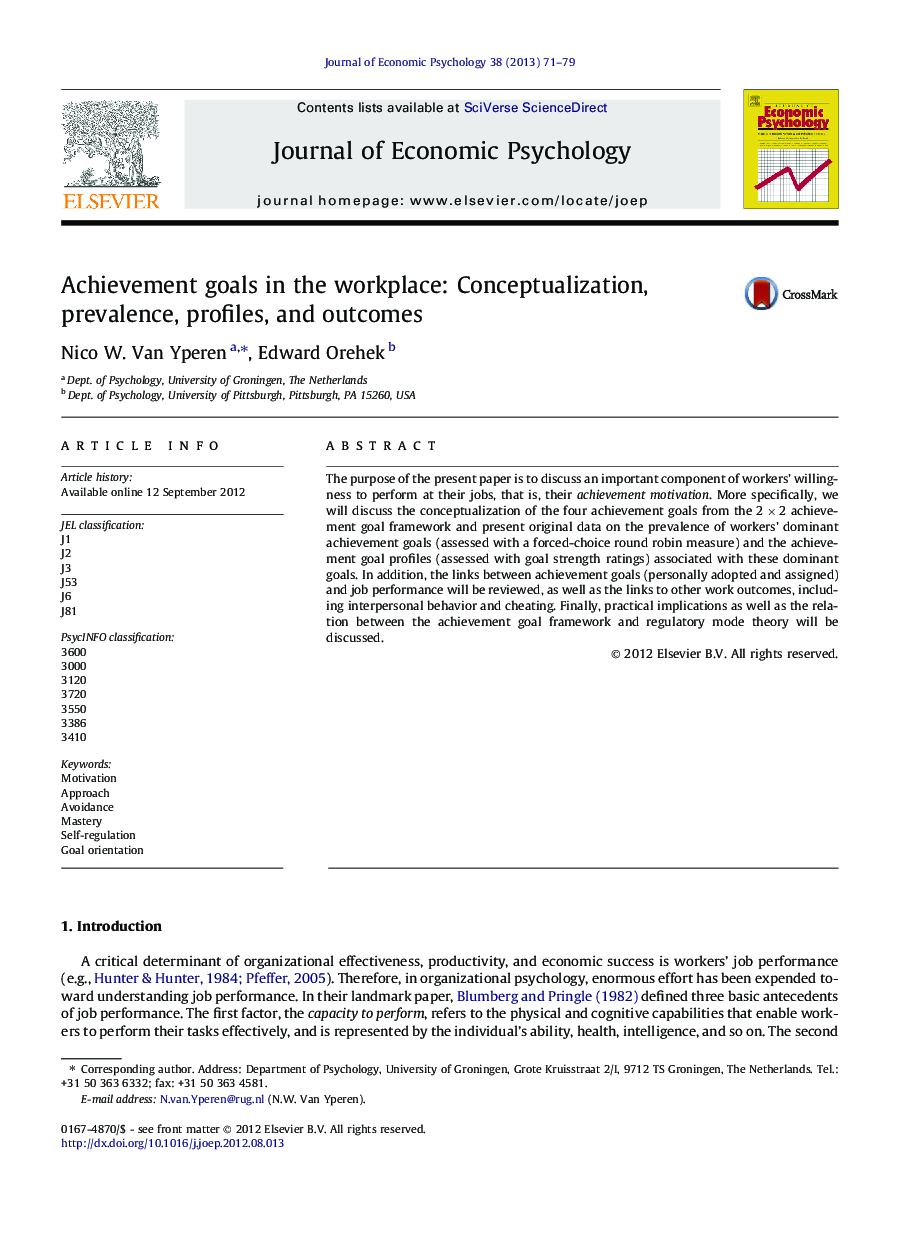| Article ID | Journal | Published Year | Pages | File Type |
|---|---|---|---|---|
| 884974 | Journal of Economic Psychology | 2013 | 9 Pages |
The purpose of the present paper is to discuss an important component of workers’ willingness to perform at their jobs, that is, their achievement motivation. More specifically, we will discuss the conceptualization of the four achievement goals from the 2 × 2 achievement goal framework and present original data on the prevalence of workers’ dominant achievement goals (assessed with a forced-choice round robin measure) and the achievement goal profiles (assessed with goal strength ratings) associated with these dominant goals. In addition, the links between achievement goals (personally adopted and assigned) and job performance will be reviewed, as well as the links to other work outcomes, including interpersonal behavior and cheating. Finally, practical implications as well as the relation between the achievement goal framework and regulatory mode theory will be discussed.
► Among employees with a dominant achievement goal, 63.3% held mastery-based goals. ► The different dominant achievement goals are linked to clear, distinct profiles. ► Only approach goals are generally beneficial for performance attainment. ► The undesirable consequences may caution practitioners against promoting PAp goals.
